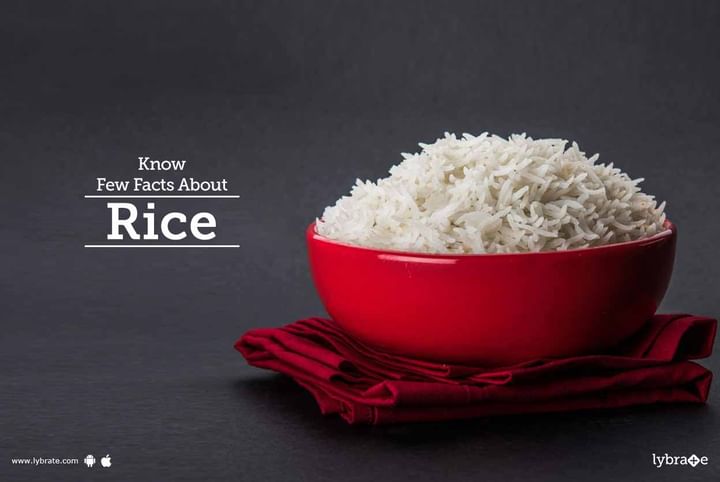Know Few Facts About Rice!
Rice though used as a staple in many parts of the world, is still one of the most controversial and misunderstood foods. There are a number of myths associated with this food and now’s time to debunk them. But let’s look at a few facts about rice first.
- Rice contains high carbohydrate content. A cup of white rice contains 35gms of carbohydrates
- A cup of white rice contains 165 calories
- A cup of white rice contains 3-4 gms of proteins
- White rice is high GI. Better to have brown rice.
- 1 roti ( 25gms ) is equal to 1/3 cup of cooked rice.
Rice, like all other carbohydrates, ultimately gets broken down into glucose inside the GI track. And glucose is the ultimate source of energy for the human body. There are also two different types of rice, white rice and brown rice. The difference between the two, especially for our health, is substantial.
White rice has very little fibre but brown rice has more fibre and also more vitamins and minerals. Whereas, brown rice has substantial amounts of minerals, which are not present in white rice, such as
- Phosphorous
- Magnesium
- Selenium
- Manganese
Brown rice contains 3 gms of fibre while white rice has only 0.6 gm. This is a substantial difference too.
Busting Myths
- Myth - Rice Contains Gluten: The fact is that rice is gluten-free and it does not cause allergies that are associated with other grains. Gluten high foods are bad for diabetics and those trying to lose weight.
- Myth - Rice is fattening: Rice is, in fact, low in fats and is also cholesterol free. Because it contains carbohydrates, rice is a good source of energy.
- Myth - Rice has no protein: Protein is the second-most abundant nutrient found in rice. A cup of white rice contains 3-4 gm. of proteins, as a matter of fact. The quality of the rice protein is also very high compared to other grains.
- Myth - Rice has high amounts of salt: Rice contains low amounts of sodium.
- Myth - Eating rice for dinner makes one fat: High carb foods like rice should be eaten at night as they are metabolised into glucose, our energy stocks. The glucose in the blood is more readily converted into energy at night. Rice and other grains should be avoided during the day as the glucose more readily converts into fat.
- Myth - Rice is difficult to digest: Actually, the reverse is true. Enzymes secreted in the human digestive tract are especially good at digesting rice. White rice undergoes a processing system where the germ layers, bran and husk are all stripped off. By doing this, white rice loses much of the nutrition too.
The rice of choice for all of us, therefore, should be brown rice, compared to white rice. This way we shall be getting the carbs for energy and proteins, fibre, vitamins and minerals to stay healthy.



+1.svg)
